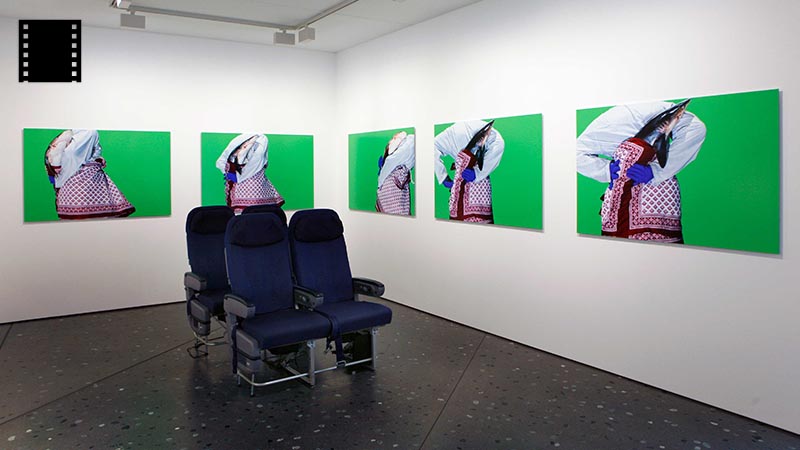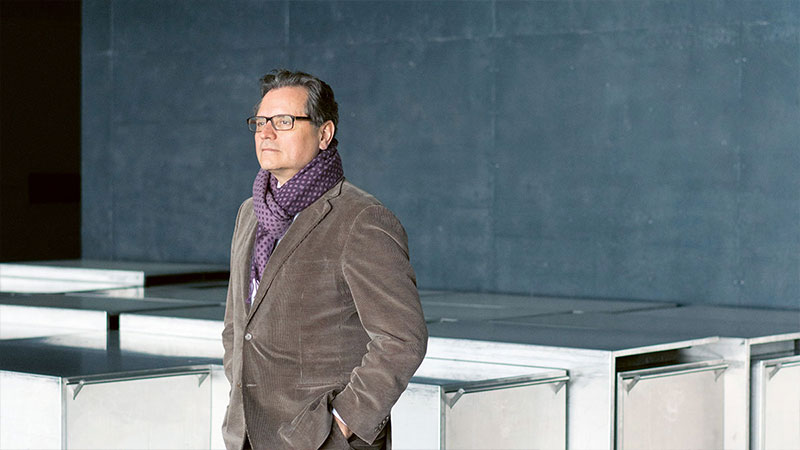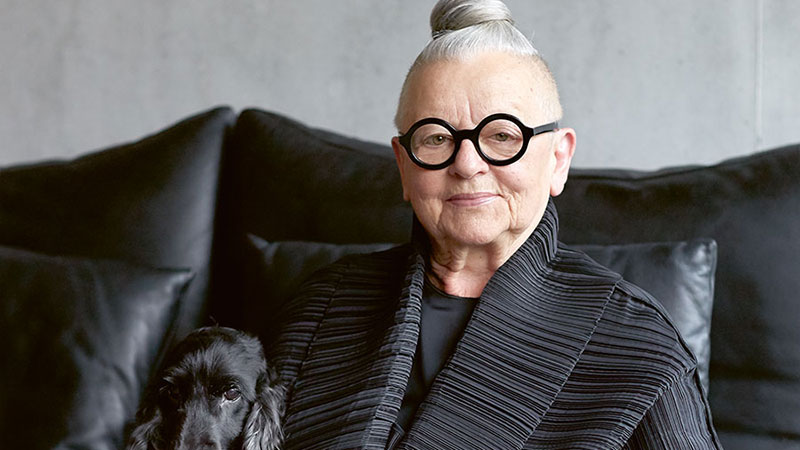Identity: the new axiom of corporate leadership
An interview with Vontobel CEO Dr. Zeno Staub
Since September 2017, Vontobel has been presenting itself to the world with a sharpened corporate identity. CEO Zeno Staub explains what identity means to him personally and why a clear company profile is indispensable.
Vontobel CEO Dr. Zeno Staub in an interview with Natalie Ernst (Corporate Responsibility). © Video: Vontobel 2017.
Mr. Staub, what does identity mean to you?
It means knowing who you are. Authenticity. Only those who are clear about their own identity can radiate this identity to others. Identity also goes hand in hand with attitude and opinion. If you have no opinion, no one can agree with you or offer something in reply.
What has shaped your identity?
My own family and my parents had, and still have, the greatest influence on my identity – in other words, my immediate environment. And then, of course, a multitude of people I met at school, at university, in my professional as well as personal circle. These include long-lasting friendships, but also one-off encounters that shaped me and influenced my identity. When I think back, how long the contact lasted was less important than the content of that contact. Sometimes a single sentence struck me in a way that still has an impact on the way I act today.
Can you give us an example?
In school I had a geometry teacher who said one important sentence that has stayed with me: “If you don’t know what a right triangle is, then it’s not very likely that you will recognize one when you run into one.” This one sentence is the answer to the question whether it is worth learning theoretical models. Or whether you understand the world better thanks to empiricism, experience, and trial and error. My geometry teacher convinced me of the value of theory. Still today, this sentence expresses very well how I approach things.
Why are you placing so much focus right now on the topic of identity at Vontobel?
Because worldwide, we very obviously find ourselves in a phase where the need for orientation and identity is growing once again, after having observed a decades-long trend towards the fragmentation of society and, in part, even towards hedonism. We now know from the past that individualization puts strain on the individual, and it is exhausting itself. So you look for a guiding principle you can lean on, or a beam of light you can navigate by – something you can come to grips with. At the present time, we are experiencing the reaction to this arduous individualization that has taken place over the last few decades.
What are the signs that allow you to recognize this?
In a Europe that is actually de-nationalized, we are currently experiencing Brexit, which was an expression of the desire for national identity on the part of the majority of Britain’s active voters. In the US, a large part of the population voted for “America First”. Members of the Trump administration put it in a nutshell when they say that there is no such thing as the common good in a world community. For them, the world stage is ultimately a platform on which nations jostle for advantage and influence.
And here in Switzerland?
Switzerland is a community which is homogeneous in terms of neither language nor religion, yet it has found cohesion; we call it a “Willensnation” – a nation created by the will to be one. It is based on common values, for example on not allowing the intervention of others into our affairs. Within this “corset” of values, we have built up an identity and ultimately a functioning communal life.
Are values enough to achieve this, or does it take more than that?
Communal life is characterized by the fact that it must physically take place somewhere. It needs spaces and platforms where people can come together and share this communal life. But it is precisely these kinds of spaces that disappear when fragmentation occurs in a society. You can see this in the way associations and parties are developing, with their members getting older and older. And in terms of a communal life that supports the creation of an identity, the Internet is not really an alternative platform, either.
So what is the alternative?
I am a sincerely convinced proponent of the Swiss militia system, which brings citizens of the country together, whether it’s to take part in voluntary engagements or to become involved in politics or in the military arena. These vessels promote the possibility to experience communal life and integrate into it; ultimately, they promote the development of an open, liberal society.
What can the economy contribute to this system?
In today’s internationally globalized, competition-based economy, being successful in business requires that employees de facto spend most of their active time for the company, in the company and with the company. If we place such demands on our employees, then they also have a right to demand from us that we not simply organize their work in a Taylorist, soulless way – as a mere means to earn a living. On the contrary, we have to put all our efforts into giving this work meaning, context, and provide it with elements that can establish identity. What is the purpose of the company? What do we stand for? What would the general public, and especially our clientele, have to do without if Vontobel didn’t exist? The answers to these questions are not easy; we learned this at Vontobel in the process of sharpening our brand. But no company can dodge the need to discuss these issues and elaborate consistent answers.
How do you measure the success of such a discussion?
People in our so-called multi-option society seek a work environment where they can contribute something, where they can bring something of themselves to the work, but where they also get something more in return than a salary payment at the end of the month. When a company’s purpose and objectives are clear, the people working there are more successful, find greater fulfillment, are hopefully also a little more satisfied and simply feel greater excitement – also in the success they share in common with their colleagues. Excitement is a very strong currency.
And what do clients and investors have to gain from this?
People who are happy in their work are also prepared to take on responsibility. Responsibility for every client conversation and for the quality of our services and products. Clients know what they can demand and expect from us. This is our handshake – no disclaimer required.
Read the full interview with Zeno Staub in the “Portrait 2017/18” on the theme “Identity”
About Dr. Zeno Staub
Dr. Zeno Staub began his career at Vontobel in 2001. Beginning in 2008, he strategically reoriented the Asset Management business area and successfully positioned it in the market. Since 2011, Staub has been the CEO of Vontobel. Under his leadership, Vontobel’s new market identity was launched in the autumn of 2017.
Who are we? What makes us matter? The question of our identity moves society; art, science, politics and every one of us seek answers. This Interview with Dr. Zeno Staub is one of numerous contributions that illuminate the topic of identity from a new, inspiring perspective.








